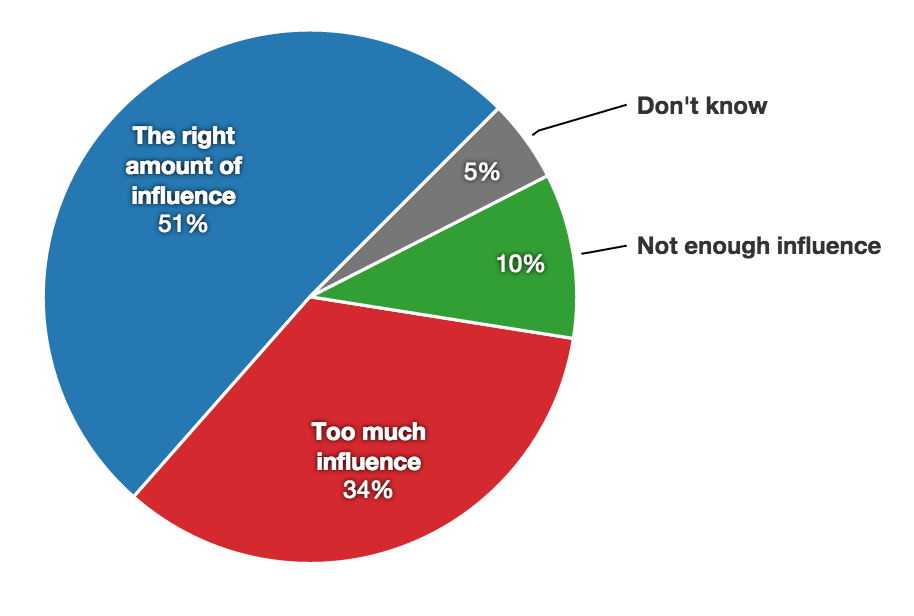Utah Voters Express Discomfort, Support for LDS Church Involvement in State Legislature
Dan Jones and Associates conducted a poll that reveals not everyone is happy with The Church of Jesus Christ of Latter-day Saint’s involvement in Utah state legislature.
Overall, more than half of the state of Utah believes that the Church has the right amount of influence on Utah politics, whereas 34 percent believes the Church has too much say, as shown in the graph below.

Among Utah Republicans, 15 percent said The Church of Jesus Christ has too much say, 67 percent said they have the right amount and only 13 percent said the Church doesn’t have enough influence.
Utah Democrats contrast the Republicans as 70 percent said there is too much influence, 22 percent said there is the right amount and 5 percent said there is not enough influence from the Church.
Although the Church leaders never endorse particular candidates and encourage members to vote according to the dictates of their own conscience, the Church has taken a stand on some political issues. Church spokesman Eric Hawkins responded to Jones’ poll and Deseret News quotes him, saying, “The church actively engages in the political process on a handful of issues — particularly when legislation involves moral issues or impacts the doctrines or practices of the church.”
Hawkins continues to explain that when the Church does get involved, it is typically made public through posting articles to the Church newsroom site, or on rare occasions, through holding a press conference.
[pull_quote_center]As the church has asserted before, elected officials who are Latter-day Saints make their own decisions and may not necessarily be in agreement with one another or even with a publicly stated church position.[/pull_quote_center]
Many people were not surprised with the results of the survey, including Senate President Wayne Niederhauser, R-Sandy. He explains, “If you’re in Georgia and a Mormon, you probably think the Baptists have too much influence.”
UtahPolicy.com reports that Jones polled 601 registered voters and that the margin of error for the results is plus or minus 4 percent.


